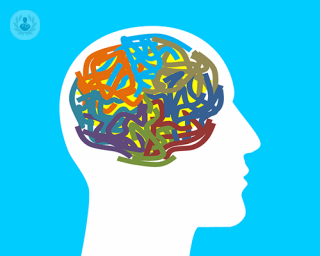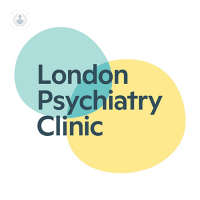Adult ADHD
Dr Leon Rozewicz - Psychiatry
Created on: 12-20-2015
Updated on: 10-12-2023
Edited by: Sophie Kennedy
What is adult ADHD?
Attention deficit hyperactivity disorder (ADHD) is a disorder which affects the brain and is characterised by a short attention span and difficulty controlling impulses. ADHD is a congenital disorder, meaning you are born with it, but it can worsen with age and can be confused with age-related forgetfulness.
It is estimated that the rate of ADHD in children is five per cent and between fifty and seventy per cent of these children continue to have the disorder during adult life. Psychiatrists are the medical specialists that deal with adult ADHD.

What are the symptoms of adult ADHD?
The symptoms of ADHD in adults can include:
- difficulty with time management
- disorganisation
- problems with concentration
- difficulty prioritising important tasks or focusing
- impulsiveness and inability to make and see through plans
- problems multitasking
- excessive activity or restlessness
- chronic boredom or procrastination
- frequent mood swings
- anxiety and depression
- outbursts of anger
- difficulty dealing with stressful situations
The symptoms of adult ADHD can cause the person in question to have significant ongoing problems at work, particularly in relation to scheduling important events and meeting deadlines. Adult ADHD can also affect a person’s home life and relationships due to the effects of the condition on mood.
What are the causes of adult ADHD?
The cause of ADHD is unknown, but researchers have pointed to a number of possibilities:
- ADHD may be due to a malfunction of neurotransmitters (messengers) in the area of the brain responsible for the executive system that dominates the capacity for concentration and attention.
- ADHD may be genetic and sometimes runs in families.
- ADHD could be a developmental problem caused by issues during pregnancy such as smoking, drinking, or poor nutrition.
- ADHD may sometimes be acquired due to a head injury or exposure to toxic chemicals such as lead.
Which risk factors are associated with adult ADHD?
Although the exact cause of adult ADHD is unknown, some factors can make a person more likely to suffer from the condition. These include:
- premature birth
- exposure to chemical toxins during childhood
- smoking and the consumption of drugs or alcohol during pregnancy
- a family history of ADHD or similar mental health conditions
What complications can arise from adult ADHD?
Although adult ADHD is not the direct cause of any other conditions, a person’s symptoms may lead them to have issues in other areas of their life. Some examples of conditions which frequently co-exist with adult ADHD are:
- mood disorders such as bipolar disorder or depression
- anxiety disorders
- other psychiatric problems, including personality disorders or problems with substance abuse
- learning disabilities, such as problems understanding or communicating effectively
The symptoms of adult ADHD can have a serious impact on a person’s wellbeing, relationships and ability to participate in daily activities or succeed at work. Problems in a person’s professional life can lead to financial instability and similarly, certain factors of the condition which affect a person’s personal life can lead to a breakdown in relationships.
Unfortunately, the symptoms of adult ADHD can make everyday life very challenging which can lead to poor self-esteem, depression and suicidal thoughts in extreme cases. Adult ADHD is also sometimes linked to the abuse of alcohol or drugs.

When should you see a doctor about the symptoms of adult ADHD?
If you feel that problems with concentration or focus are disrupting your daily life, then it is important to see a doctor to discuss your symptoms. Similarly, if you are experiencing intense changes in mood which are affecting relationships, issues with handling stress or frequent outbursts of anger, you should report this to your doctor.
Although it is normal to experience some of the symptoms of adult ADHD at one time or another, persistent and long-term issues should be discussed with a health professional, especially if they do not have a direct or obvious cause, such as a bereavement or significant life change.
How is adult ADHD diagnosed?
When you visit a doctor about ADHD, they will ask you about your symptoms, how long you have had them for, and how frequently they occur. If the doctor suspects you may have ADHD, they may refer you for a formal assessment with a specialist psychiatrist.
Although they symptoms of ADHD may manifest themselves differently in adult life, symptoms can often be traced back to childhood. Discussing your medical and symptom history throughout childhood and onwards is part of the diagnostic process for adult ADHD.
How is adult ADHD treated?
Treatment for adult ADHD often includes:
- Medication – this may include stimulants or non-stimulant medication which can help to increase attention span or control hyperactive behaviour
- Psychotherapy – including counselling and cognitive behavioural therapy, which can be especially useful if you also struggle with symptoms such as depression and anxiety
Treatment plans are highly individualised and your doctor will be able to advise you on the best options for you.
















